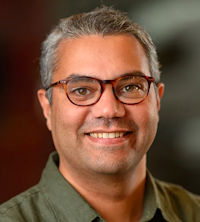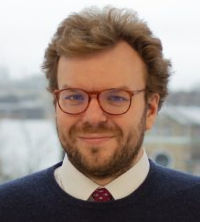Project overview
This project was funded from 2022-24 by the UK Foreign, Commonwealth and Development Office (FCDO) in partnership with Dr Hassan Elbahtimy at King’s College London and Dr Grant Christopher and Alberto Muti at UK NGO VERTIC.
The concept of ‘irreversibility’ was cemented in nuclear disarmament diplomacy in the final document of the 2000 Review Conference on the Treaty on the Non-Proliferation of Nuclear Weapons (NPT) that set out 13 “practical steps for the systematic and progressive efforts to implement article VI of the Treaty”, which commits states to work in good faith on measures to achieve nuclear disarmament. The fifth of the ‘13 steps’ was “The principle of irreversibility to apply to nuclear disarmament, nuclear and other related arms control and reduction measures”. More recently, the 2017 Treaty on the Prohibition of Nuclear Weapons (TPNW) requires nuclear-armed states that join the treaty to “verify the irreversible elimination of their nuclear-weapons programme, including the elimination or irreversible conversion of all nuclear weapons-related facilities”.
The current focus on irreversibility is an outgrowth of FCDO's work on nuclear disarmament verification over the past 20 years or so. This has taken the form of a partnership with Norway since 2007 (the UK-Norway Initiative), leadership within the International Partnership for Nuclear Disarmament Verification (IPNDV) established in 2014 the Quad Nuclear Verification Partnership (United Kingdom, United States, Sweden and Norway) since 2015. The connections between verification and irreversibility were set out in an IPNDV paper in 2018.
However, detailed thinking about irreversibility in relation to nuclear disarmament has been limited, other than a single study in 2011 by David Cliff, Hassan Elbahtimy and Andreas Persbo at VERTIC. This framed irreversibility in a practical rather than an absolute sense and in terms of a spectrum based on the time, cost, and difficulty of rearmament. The basic premise here is that the deeper and wider the scope of nuclear disarmament and denuclearisation, the more significant the challenges of reversal and the further down the spectrum to ‘maximum’ irreversibility. This project built on and developed this framework.
Project leaders
Nick Ritchie is a Professor in International Security at the Department of Politics and International Relations where his research examines the global politics of nuclear weapons and nuclear disarmament.

After completing his PhD thesis at the University of Bradford in 2007 on the evolution of US nuclear weapons policy after the Cold War, Nick spent four years researching and teaching at Bradford’s Department of Peace Studies before joining York in 2011. He previously worked for five years at the Oxford Research Group, an independent Non-Governmental Organisation working with policy-makers and independent experts on the challenges of global security and nuclear disarmament. Recent research has focused on the international movement to ban nuclear weapons culminating in the Treaty on the Prohibition of Nuclear Weapons in 2017. His work has been funded by the UK Foreign, Commonwealth and Development Office, Austrian Ministry of Foreign Affairs, New Zealand Ministry of Foreign Affairs and Trade, Economic and Social Research Council, Joseph Rowntree Charitable Trust and Nuclear Education Trust.
Dr Hassan Elbahtimy is Senior Lecturer in the Department of War studies at King's College London.

Hassan’s research focuses on international security and particularly the global politics of nuclear, chemical and biological weapons. He has written widely on these topics including in Foreign Affairs, Journal of Strategic Studies, Security Studies and the Nonproliferation Review among others. In 2019, his research was awarded the McElveny Grand Prize by the Nonproliferation Review. Hassan served as director for the Centre for Science and Security Studies (CSSS) 2021-2023. He was a Trustee and Executive Committee member of the British International Studies Association (BISA) 2020-2023 and chaired BISA’s L.H.M. Ling Outstanding First Book Prize in 2021 and 2022.
Dr Grant Christopher is Co-Programme Director for VERTIC’s Verification and Monitoring Programme.

He researches nuclear disarmament verification using software modelling, non-proliferation in East Asia and the role of emerging technologies in nuclear proliferation.
Grant holds a PhD in experimental astroparticle physics from New York University. He also holds a Master’s degree in physics and a BA in natural sciences from the University of Cambridge. In the past Grant was a research scientist at CERN, as a member of Brown University, where he conducted searches for exotic physics and supersymmetry and was a member of the CMS collaboration when they discovered the Higgs boson. For five years Grant was a Research Fellow at King’s College London and the spinout company Ridgeway Information where he worked on nuclear non-proliferation verification through open sources and the impact of emerging technologies on proliferation.
Alberto Muti is Co-Programme Director for VERTIC’s Verification and Monitoring Programme.

He leads the programme’s work on IAEA Safeguards and Nuclear Security, and carries out research and analysis on DPRK, nuclear non-proliferation and nuclear verification. He has also contributed to projects on other issues, including chemical security, biological weapons verification, and conventional and cyber security. Alberto’s work and expertise encompass planning and delivering capacity-building programmes, conducting workshops, designing tabletop simulations and “serious games” for research and training purposes, and developing innovative tools to facilitate and enhance research and analytical work.
